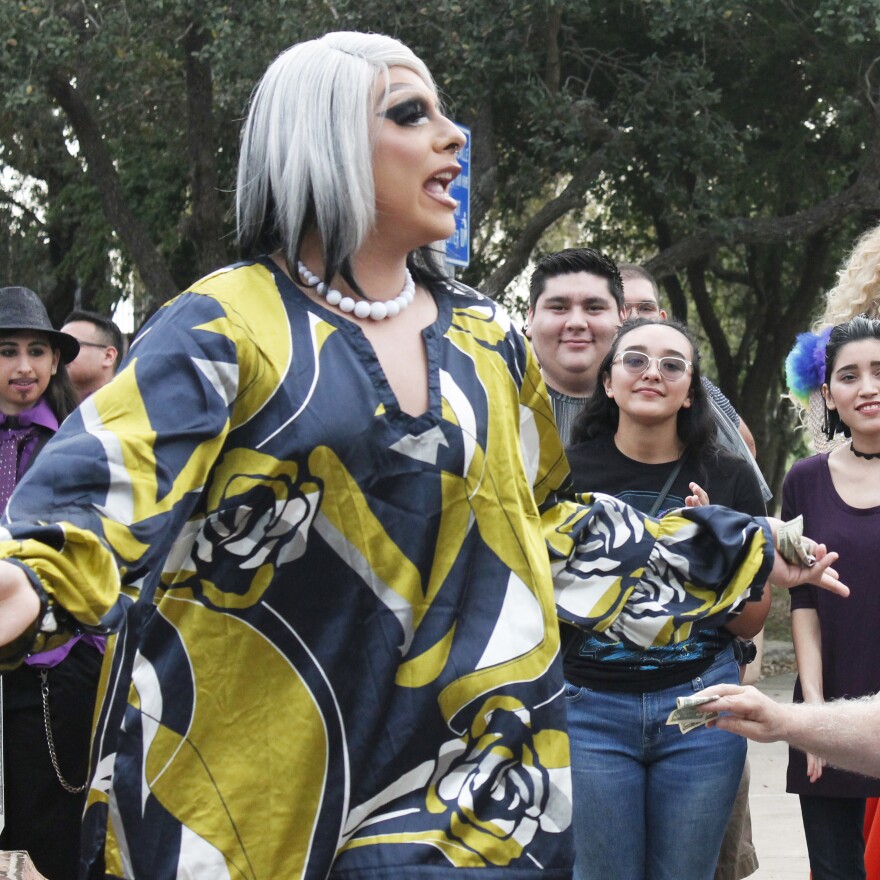By Howard Fischer
Capitol Media Services
PHOENIX -- Over the objections of Democrats, all 16 Republican Arizona state senators approved two measures Thursday that proponents say are designed to outlaw "drag shows'' that can be seen by children -- even as neither measure actually uses those words.
And they do that by expanding the scope of what kinds of performances must be regulated.
SB 1028 would create a new category in law of "adult cabaret performance.'' More to the point, it would prohibit these on public property or in any location that someone knows or has reason to know it could be viewed by a minor.
A companion measure, SB 1030 gets at the issue by crafting a new law defining a "sexually explicit performance'' as any show or entertainment where one or more people entertain an audience of two or more that is "sexually explicit.'' And that goes to a new definition that includes everything from sexual excitement and simulated sex acts to any intention to appeal to prurient interests.
The intent, according to Sen. Anthony Kern, R-Glendale, is not to outlaw drag shows.
"My goal is to protect children, from sexually explicit drag performances, not drag shows in and of themselves,'' he told colleagues. Instead, Kern said, he wants to regulate "sexually explicit performances.''
"And if that includes a drag show, then I prefer to protect Arizona's children,'' he said.
But Sen. Priya Sundareshan, D-Tucson, said the measure is flawed by "vague and broad language'' she believes could be applied to go after other situations. And Sen. Raquel Teran, D-Phoenix, said she envisions how the law could apply to even stand-up comedy routines.
Proponents, however, said the legislation is designed to target what they consider to be performances that are inappropriate for children.
Consider, said Sen. Justine Wadsack, R-Tucson, the instances of "drag story hour,'' with men dressed up as women reading to groups of children.
"You have to back up and ask yourself a very important question: Why do grown men want to dress up as women and read to young children?'' she said. "Why not just dress in a pair of jeans and a T-shirt and read to the children if it's not so bad?''
The answer, Wadsack said, goes to what she contends is "sexually grooming our children,'' what she said is the motive of these performers
"To say that these performers are not targeting children is an absolute lie,'' she said. "Because if they weren't targeting children, they would make their shows 18 and over.''
And Senate President Warren Petersen, R-Gilbert, made his views on all drag show performances quite clear.
"Folks, if you've seen it, you know this stuff is gross,'' he said. "It's disgusting. It's perverse.''
But Sen. Juan Mendez, D-Tempe, said he sees something else in the legislation.
"Trying to redefine 'drag shows' as sexually explicit is a direct attack on marginalized communities,'' he said.
In essence, Mendez said, the Senate is trying to "conflate'' a drag performer with a stripper in an adult-oriented business.
He called that "dangerous, discriminatory and anti-LGBTQ.''
And Mendez said he sees such measures as a bid to somehow erase certain people.
"But despite these kinds of systemic efforts, trans people will continue to be present in everyday life,'' he said.
"This community will not back down from these kinds of attacks,'' Mendez continued. "These kinds of attacks cannot be sustainable for politics, for a healthy working community.''
Both measures now go to the House.










